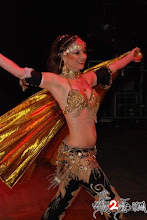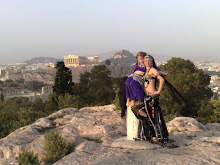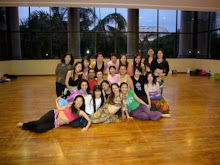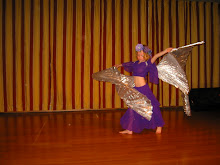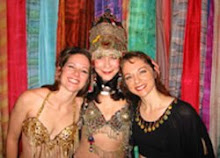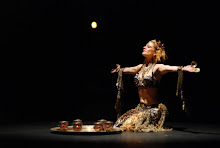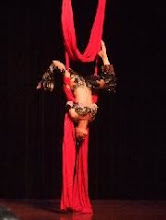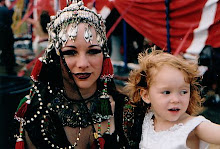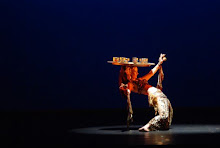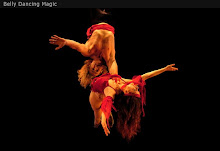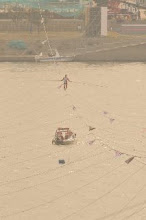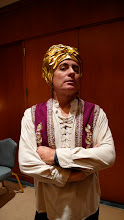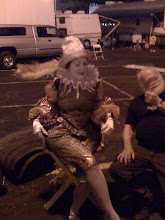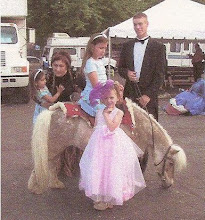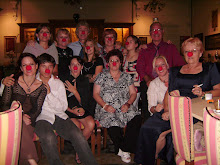Spring 2016 Recital Speech
Sacha and I began Moody Street Circus over seven years ago. We had until then been performing and teaching circus and belly dance all around the world for decades. We had never committed to such stability (read: signed a lease), and we had no clear idea of how things would go. We had faith in our instincts and in the name Moody Street Circus. With that name, I wanted to encompass both the grounded notion of place - Moody Street, Waltham, MA - Here We Land! Our chosen neighborhood! - and the circular sense of circus (from the ancient Greek kirkos, meaning circle/ring) as community as much as artful, athletic entertainment. One of the powerful aspects of the circus is that the audience, organized in a circle around the circus ring, becomes part of the action. Positive emotions are amplified as audience members see each others' faces on the other side of the ring, laughing and enjoying the spectacle. Though in the studio we are not organized as a ring, the space has nonetheless become a community beyond anything we could have conceived when we started out. I have never put down roots in any one place with such a dedicated purpose for so long to be able to relish the sweet and tender flowers that blossom from that planting! It has all been unexpectedly wondrous. In this studio we have experienced the circle of life, the fruits of true community. We have supported one another through celebrations and hardships, witnessing new lives entering our tribe and mourning beautiful souls who have moved on to another dimension. We feel privileged to be part of so many people's lives and artful journeys in circus and belly dance. We are honored by the families that choose to bring their children to grow with us, year after year. Thank you all for coming and please enjoy the show - featuring our beautiful, flourishing flowers!
The Blessings of Weakness
One of my favorite quotes is when Joseph Campbell paraphrases Nietzche:
“Nietzche was the one who did the job for me. At a certain moment in his life, the idea came to him of what he called “the love of your fate.” Whatever your fate is, whatever the hell happens, you say, “This is what I need.” It may look like a wreck, but go at it as though it were an opportunity, a challenge. If you bring love to the moment – not discouragement – you will find the strength is there. Any disaster you can survive is an improvement in your character, your stature, and your life. What a privilege! This is when the spontaneity of your own nature will have a chance to flow.”
As one who grew up navigating constantly changing circumstance but unwilling to accept a narrative of victimization, I am drawn to the idea of turning the shit of our lives into gold and flowing from there. Whatever is happening to you, if you bring love to the moment and not fear and anger, you will learn and evolve in more positive ways that will improve your life. It is not always easy to shift your perspective and do this -- it is hard work -- but it is worth it.
In the same vein, I was struck last night reading this interview between Bonnie Bainbridge Cohen and Nancy Stark Smith from Cohen's book Sensing, Feeling, and Action: The Experiential Anatomy of Body-Mind Centering. The book is formed by the collected articles for Contact Quarterly dance journal 1980 - 2007 (Contact Editions, Northampton, MA, Second Edition 2008). Their conversation brings the love of your fate idea into the body.
Today I'm going to appreciate the views from my windows.
“Nietzche was the one who did the job for me. At a certain moment in his life, the idea came to him of what he called “the love of your fate.” Whatever your fate is, whatever the hell happens, you say, “This is what I need.” It may look like a wreck, but go at it as though it were an opportunity, a challenge. If you bring love to the moment – not discouragement – you will find the strength is there. Any disaster you can survive is an improvement in your character, your stature, and your life. What a privilege! This is when the spontaneity of your own nature will have a chance to flow.”
As one who grew up navigating constantly changing circumstance but unwilling to accept a narrative of victimization, I am drawn to the idea of turning the shit of our lives into gold and flowing from there. Whatever is happening to you, if you bring love to the moment and not fear and anger, you will learn and evolve in more positive ways that will improve your life. It is not always easy to shift your perspective and do this -- it is hard work -- but it is worth it.
In the same vein, I was struck last night reading this interview between Bonnie Bainbridge Cohen and Nancy Stark Smith from Cohen's book Sensing, Feeling, and Action: The Experiential Anatomy of Body-Mind Centering. The book is formed by the collected articles for Contact Quarterly dance journal 1980 - 2007 (Contact Editions, Northampton, MA, Second Edition 2008). Their conversation brings the love of your fate idea into the body.
Nancy: You've often talked about an apparent weakness as a gift, in that it offers a kind of leverage for bringing about some new learning that we need. I think that's a good way of looking at ourselves. It helps to eliminate the fear that may block us from learning or changing. So often we're so busy judging ourselves that we can't move ahead. But if there's a training that encourages us to become more curious at that point, to become sensitive rather than defensive, then that changes the whole pattern of how we deal with problems, and how we deal with decision, change, and confusion.
Bonnie: Yes. You've said that so beautifully. When there's a point of weakness, so often our focus becomes trapped on that "place of stress" or problem. But the cause may be elsewhere. For example, if you have a knee problem, and you just look at that particular weakness, you're probably going to be stuck with it all your life. But if you see it as a result of forces that are converging on your knee from other places in your body, and you look at everything in relations to it, then the knee becomes a leverage to a kind of integration of the whole. If you don't have a point of focus, you don't have a place of entrance. [...] When my husband, Len, and I lived in Japan, we rented a house during the night and the next day found out there was a wall in front of the window. Living there made me realize that I never would have noticed the view beyond as much as a I noticed that wall. And if it had been my house and I was able to knock down that wall, I know I would have noticed the life outside with such a greater intensity than if the wall had never been there. So we have to develop respect for things about us that seem to be weaknesses. Otherwise, we have no place to begin.
Today I'm going to appreciate the views from my windows.
Subscribe to:
Comments (Atom)
